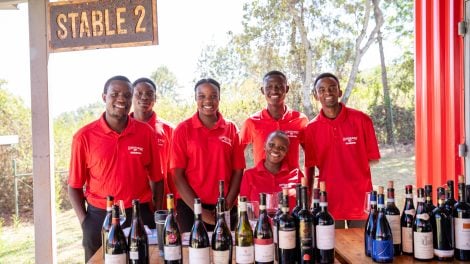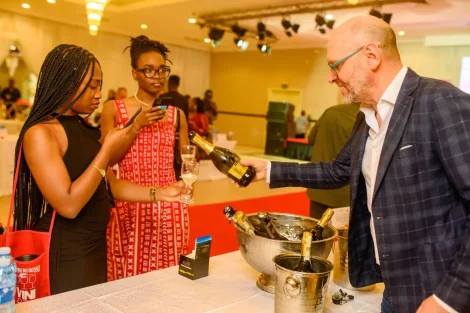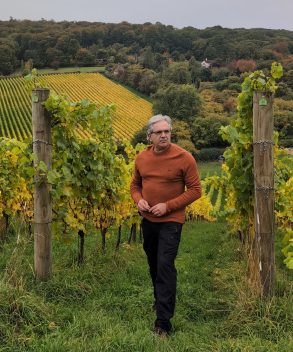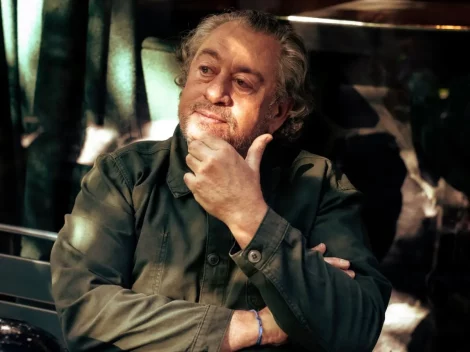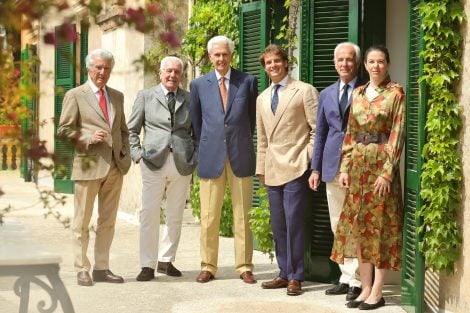And with this, it’s 20: twenty years of life, work, and tortelli. But above all, 20 years of sold-out service, which, multiplied by 60 seats, adds up to something like 520,000 covers — and that’s a conservative estimate. A rough calculation that helps convey the scale of a success that, for many, has become legend. Because the question that’s been asked for years now about Ai Due Platani (one of the best trattorias in Italy, awarded Tre Gamberi by Gambero Rosso) is: “But how do you get a table?” So we asked Giancarlo Tavani, the owner of Ai Due Platani.
So then: how do you get a table at your place?
By booking.
Sounds easy. But how do you manage it?
On the first of each month, we take bookings for the following two months, with a confirmation email including all the reservation details. Once we’re fully booked, we open the waiting list.
Two months? That’s quite a stretch. Is there a no-show penalty?
No, since Covid we do it this way: we call to confirm the table on the day of the booking. If there’s a positive response in the morning, it’s unlikely they won’t show up for lunch… and anyway, we keep records! If they cancel, we’ve got the waiting list, and there’s always someone who tries to call on the day.
Does anyone complain about this system?
Booking makes the table and the management of the place democratic. It protects the customer, who can reserve without feeling obligated, since they can still decide on the same day. And it creates a virtuous cycle: what we buy is already sold.
So it’s a win-win?
Yes, it benefits everyone: us, the producers, and the customers. We always have fresh produce, nothing dies in the fridge, and there’s never a dish we need to push in the evening or promote — unless it’s an added value for the customer — because everything is done exactly as it should be.
This works because you’ve been running at full capacity for 20 years. What’s the secret?
Knowing who you are and what your role is, and then humbly accepting it. I’m originally from Cremona, and we’ve always been the top of the second division. If you go to the first, you risk being at the bottom. That’s where your credibility and your work are tested. Others might judge your value differently, but you need to know what you can and cannot afford.
And who are you?
A trattoria, we make traditional dishes from this region.
That makes it sound almost simple…
Let’s not forget the key thing: the quality of the dish must always be high.
You’re telling me you have bookings two months ahead because you’re just a normal trattoria? Come on, what’s the recipe?
You broaden your customer base, try to be known by as many people as possible, and build loyalty through certain products.
Such as?
My job is to communicate, to reach as wide an audience as possible without ever betraying expectations for the things we’re known for. Otherwise, you risk just singing to your own choir. My fear is that it becomes something only for insiders or enthusiasts. But we need to reach everyone, clearly, because we’re a commercial business — and as such, we always need to be running at full capacity. If we’re not, we have problems.
What do you rely on to keep customers coming back?
When you think of Ai Due Platani, you think of the ice cream (churned to order with a vintage Carpigiani machine), the fried cake (torta fritta), stuffed pasta, and then the starters: cured meats, pickled vegetables, and Lambrusco. That’s what my work is based on.
And yet you also serve Champagne, pigeon, and foie gras.
True, but those are extras for customers who dine in restaurants frequently. Most people come to eat those core dishes — they travel miles for them.
Is it important to have customers from outside the area?
Yes. If we only had a local clientele, we’d have to rely on variations, since those three dishes are made by everyone around here. That would make us more vulnerable because it’s harder to build loyalty. We are a trattoria — if you’re looking for cured meats and torta fritta, you’ll find them here. That’s what we’re here for, and that’s how the place stays full.
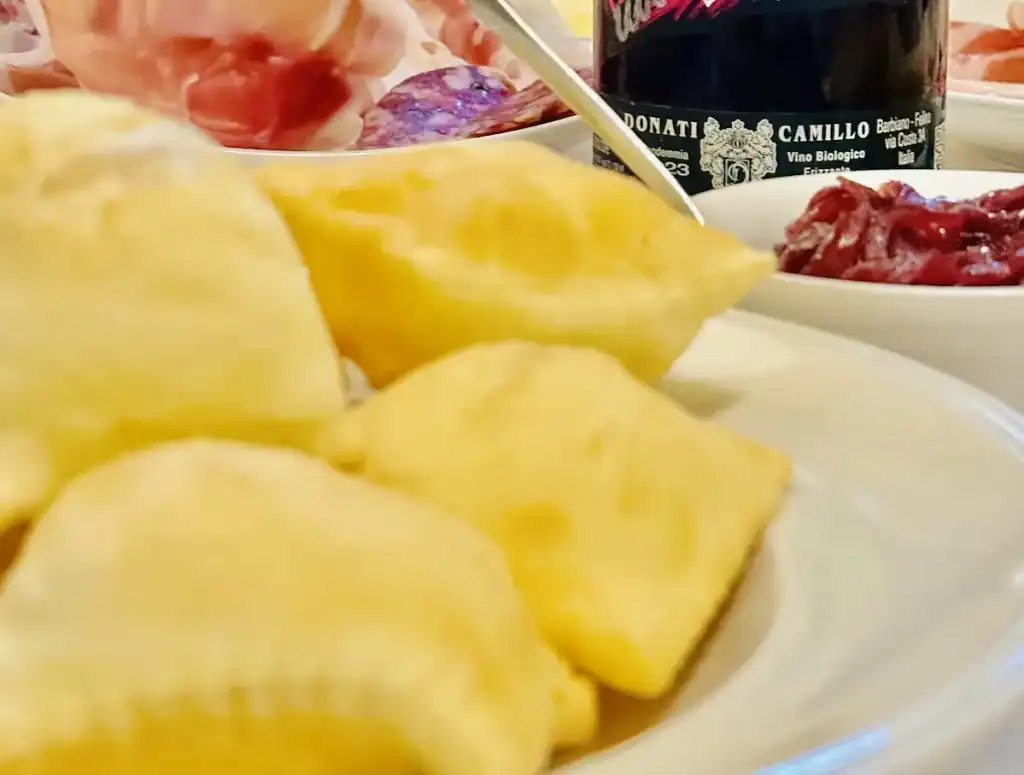
No variation possible?
We try to strictly follow the seasonality of products, forgoing certain ingredients when they’re not available. But I need people to associate us with specific things. And if we do offer something else, it has to be special — like an exceptional coppa, or perhaps the cherry tortelli we’ll also bring to the dinner in Rome on 30 June.
Do people ask for them?
Yes, and it always surprises me. It’s a sign of trust — in us and our way of working.
What is your way?
If you focus only on the till, it doesn’t work. But if you focus on the customer’s wellbeing, the till follows. We’re an established business for a certain type of cuisine and service, and the results are there. If you do something well, the results might not come immediately, but they do come.
How are you coping with rising ingredient costs?
If cheese prices go up, we calculate how much we’re forced to increase prices by percentage. Quality costs money, and the margin has to be calculated carefully — no guesswork.
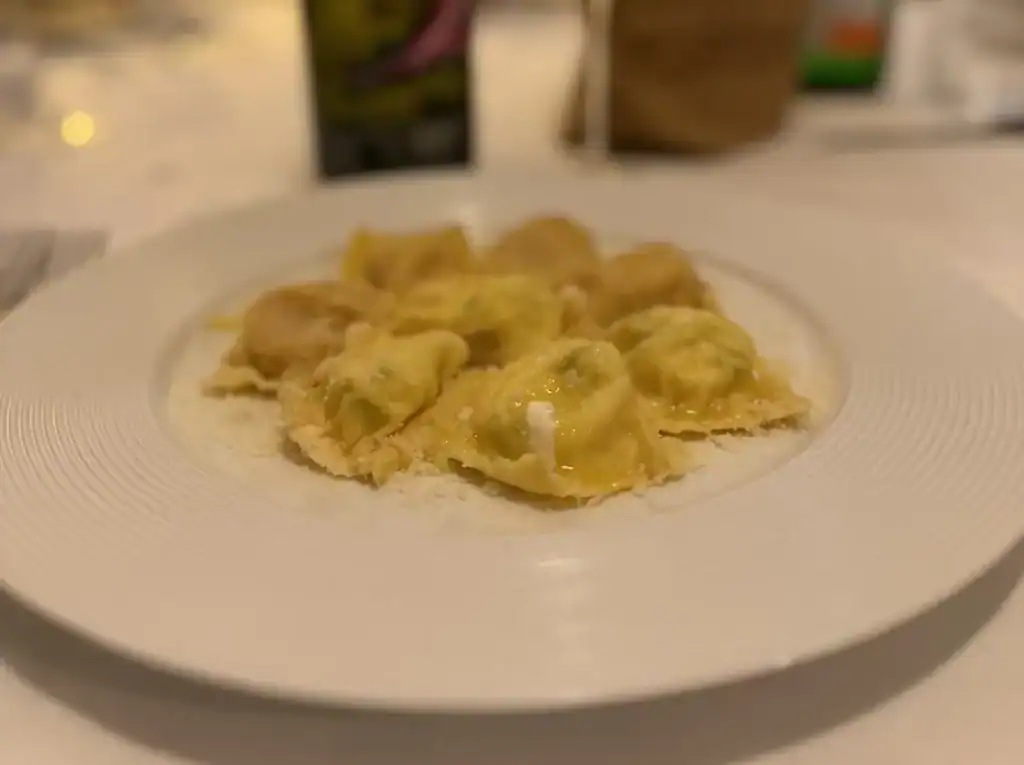
Let’s talk tortelli: yours are legendary. What’s special about them?
Our tortelli are made to order, the pasta is elastic and cooks faster, the filling has time to heat through and stays creamy. Even those without a refined palate can tell they’re genuine — they sense it doesn’t make them feel bad. “Genuine” is a word they’re trying to erase, along with ethics and sacrifice, but what happens afterward matters. The day after, you feel how wholesome your food was, or how it made you feel, the signals your body gives when it’s working overtime. We, who are the last generation tied to memories of how things were done, have a responsibility to our customers, who are now into the second generation.
Do you still feel connected to the traditional idea of a trattoria?
Yes and no. In the past, a trattoria was a civic outpost — closing meant depriving the community of a place to meet for a coffee. People would say: what if someone needs something and we’re shut? We’ve gone beyond that.
What do you mean?
In the past, a trattoria wasn’t a choice. Now it is. It used to be a family-run business. Today it isn’t, so it needs to provide salaries. You have to ask yourself: what works now? But if you think tortelli are just an end in themselves, you’re missing the foundation — there has to be a cultural aspect. With Premiate Trattorie — the association we belong to — you’re dealing with people who chose to do this. When we get together, we don’t talk about work, because our places are always full, even if we know that natural dips in business happen: today you sell less wine, tomorrow less pasta. But it’s important that you’re there for the things that matter. That’s why chasing trends means that eventually you don’t know who you are or where you are anymore. And that’s critical.
Still, you’re an atypical trattoria — one might say modern.
I’m not the type of innkeeper closed off within four walls. I travel a lot, and every time I go somewhere, I try to learn: whether it’s pintxos and txakoli in the fish market square in Bilbao, Elkano, which looks like a seaside trattoria but serves turbot and has an impressive front-of-house, or Troisgros or Anne-Sophie Pic. I myself worked at L’Ambasciata in Quistello, I know the value of that level of cuisine. But I stay in my lane, trying to understand how to do what I do to the highest standard.
Ai Due Platani – Parma – via Budellungo, 104/a – 0521 645626 – https://www.aidueplatani.com/

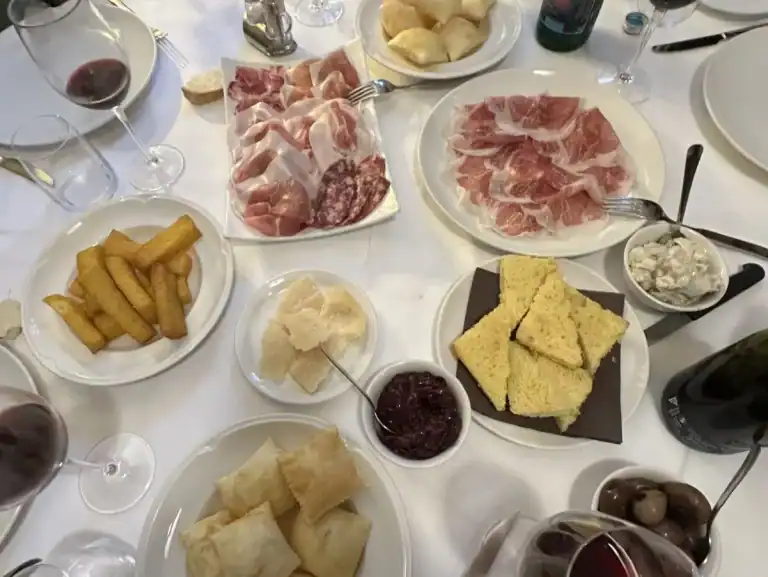
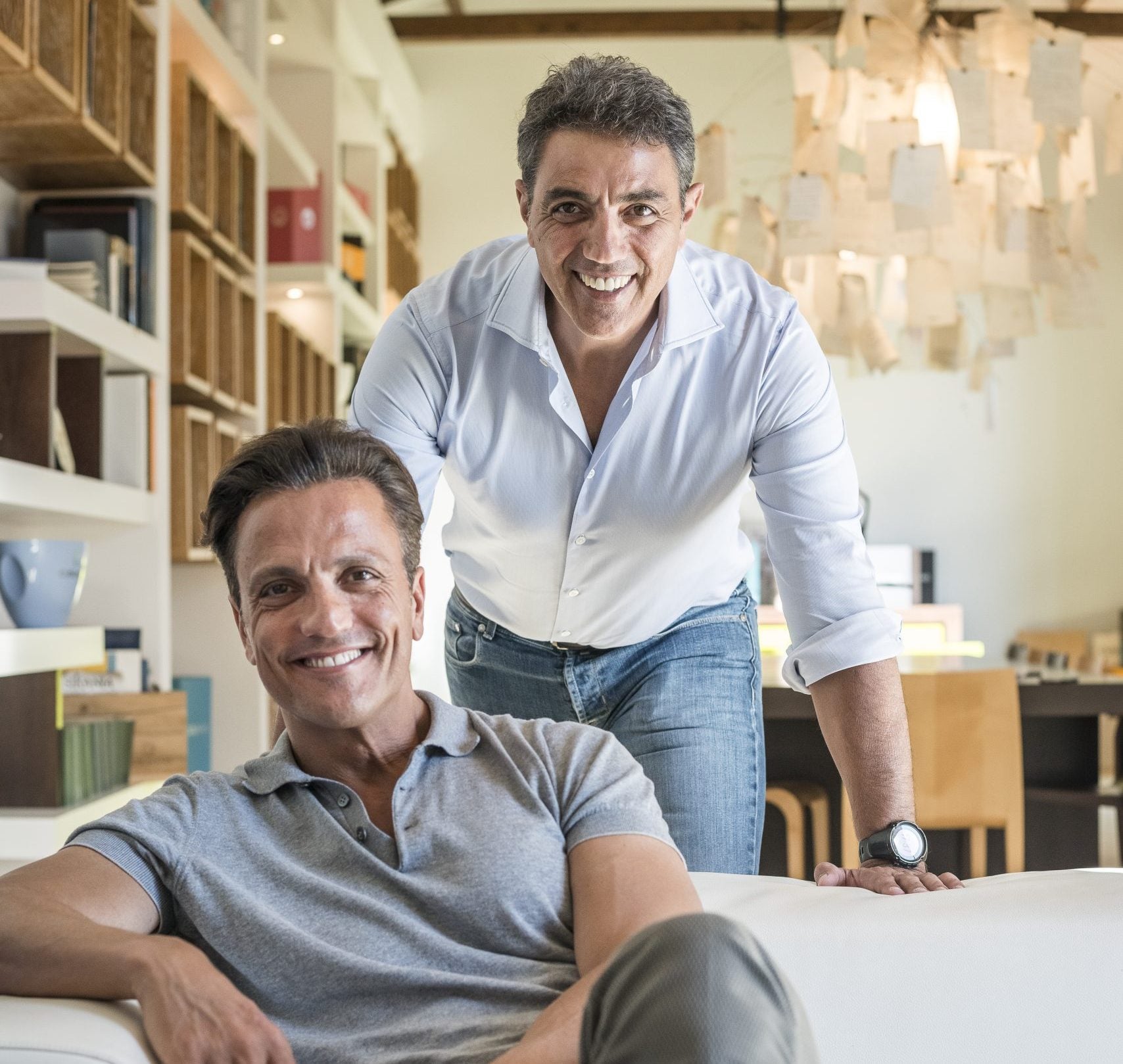 'You cannot imagine how magnetic Etna is!'
'You cannot imagine how magnetic Etna is!' 'To be the global platform, we must take everyone and everything into account'
'To be the global platform, we must take everyone and everything into account'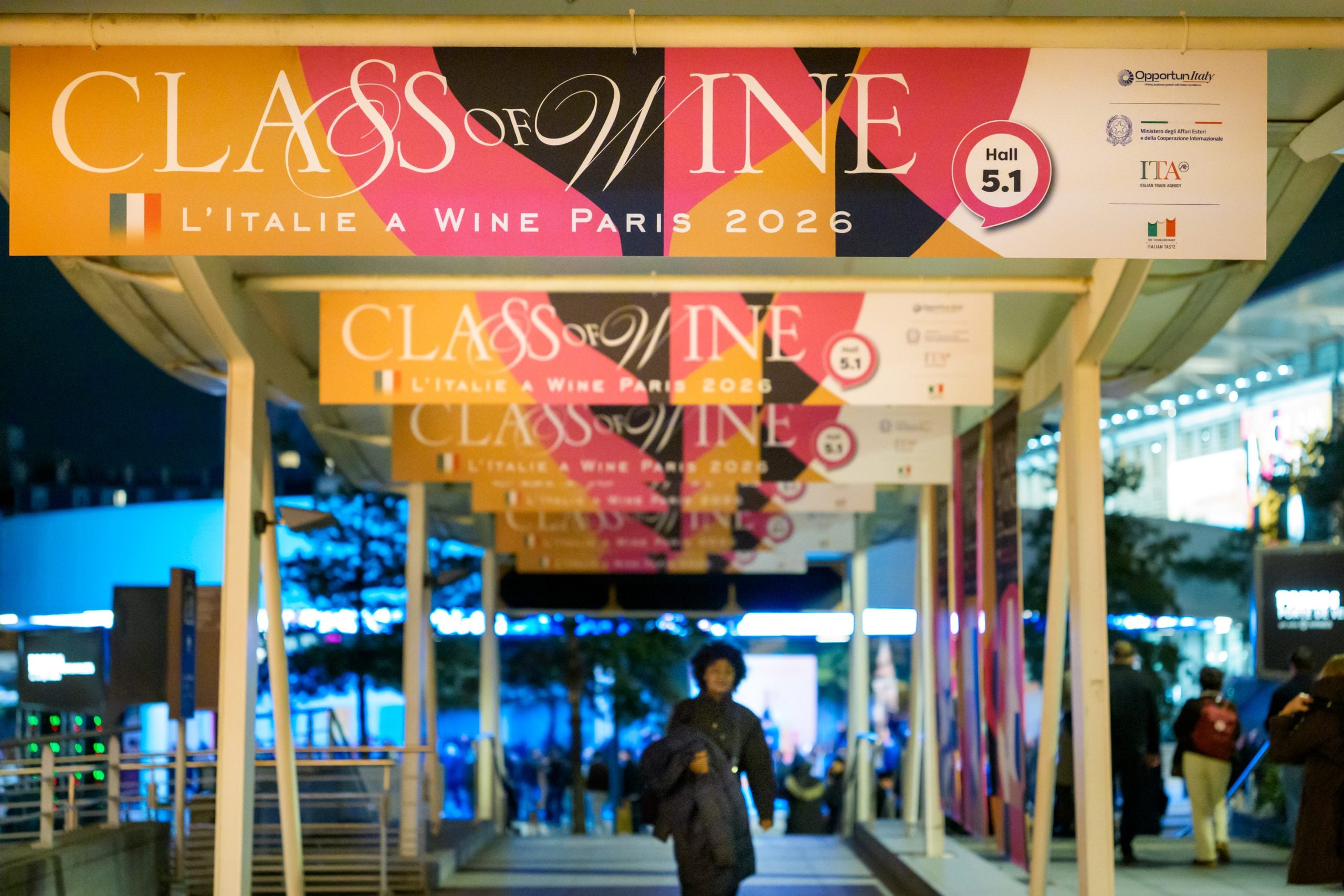 What did Italian producers think of Wine Paris 2026?
What did Italian producers think of Wine Paris 2026?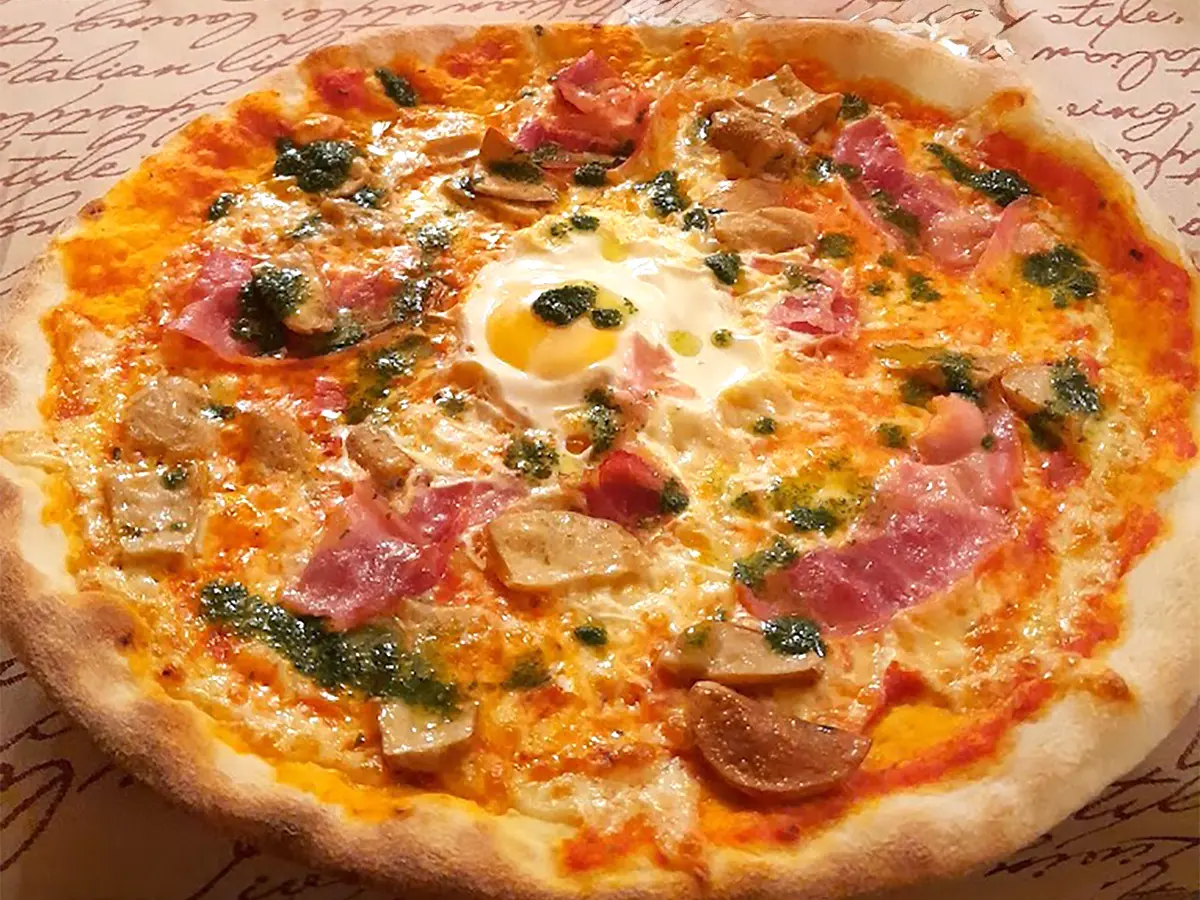 The pizza that’s taking the Winter Olympics by storm
The pizza that’s taking the Winter Olympics by storm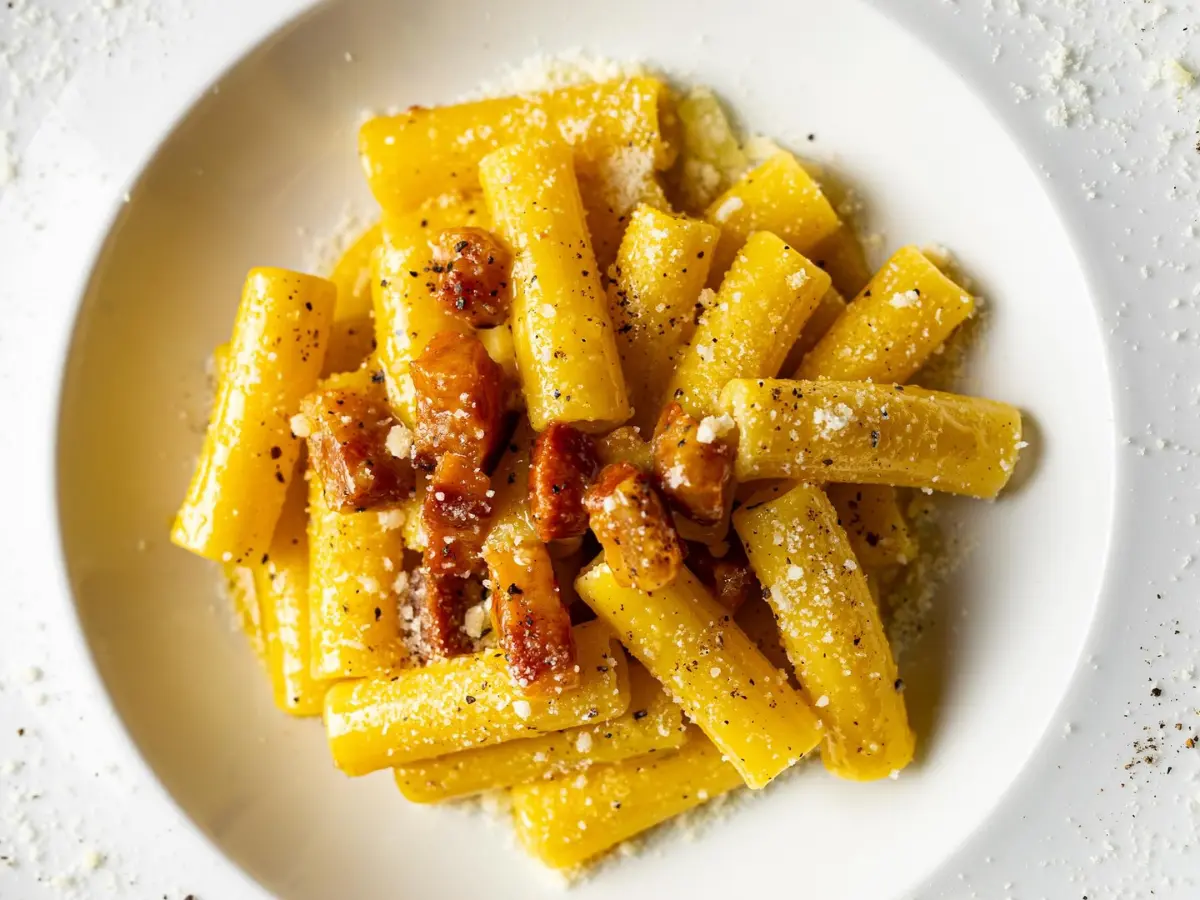 Where to eat in Central Rome (while avoiding the tourist traps)
Where to eat in Central Rome (while avoiding the tourist traps)